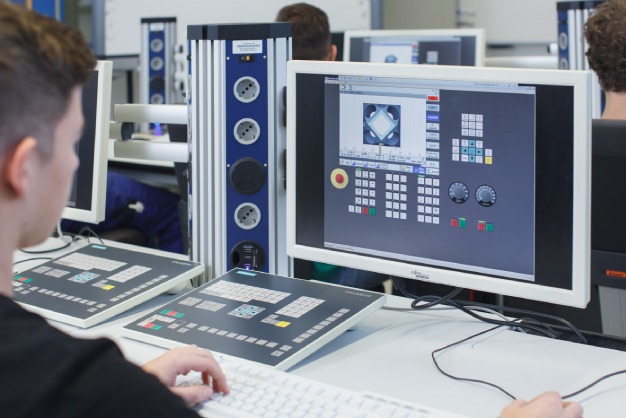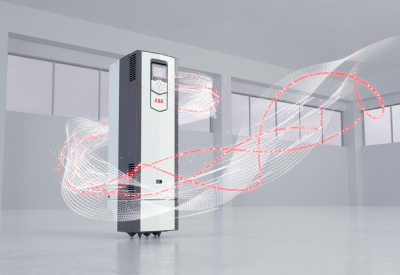Siemens Launches New Microcredential to Empower the Workforce of the Future
July 3, 2025

By Krystie Johnston
Siemens recently launched ‘Expedite – Skills for Industry’ at Realize LIVE Americas in June. Delivering on their promise to help students prepare better for the future of work by connecting engineering theory with practical skills, their microcredential courses will begin accepting enrollment this month. Dora Smith, Senior Director, Future Workforce and Academic Strategy, Siemens Digital Industries Software, discusses the need for these courses and what people can expect from them.
Smith directs Siemens’ future workforce strategy by focusing on quality programs they can bring to the market that address the skills gaps in industry. “The wording around ‘Expedite’ – it directly addresses how we can expedite the onboarding time that we have seen as a company at Siemens, and that we have seen our customers and partners face. It is laser focused on what we can do, from enabling the market, to enabling educators, students, and learners, and drive engagement across those personas,” she says.
Siemens has taken feedback from the academic and commercial markets to assess the gaps that exist between theory and practical skills to build their microcredential programs that address these needs. All too often the feedback indicates that graduates are not coming into the industry with enough understanding or skills to be ready for work. Smith says that Expedite – Skills for Industry consists of a four-course fully online microcredential that dives into the foundations of what is really needed to work in the industry.
To make the program laser focused, Siemens engaged with multiple stakeholders to ensure that the gaps they identified are met. “There are about 50 learning engagement hours across several different modalities. A lot of this was developed by people who we have hired or contracted with, who are educators and understand some of the best practices and engagement models. There is an interactive learning approach through AI avatars and scenario-based learning. We are excited about it because we have been working hard on it,” Smith says.
Expedite – Skills for Industry delivers on a promise that Siemens made a year ago at Realize LIVE, a conference they host that brings together innovators to collaborate and share knowledge and experiences. “Last year at Realize LIVE, we announced that we were really pivoting and focusing on this recognized credential strategy. And this year, we had two announcements: one right before Realize LIVE, about us receiving the first ABET recognized credential, and one about Expedite at the event, our own Siemens stand-alone credential,” Smith says.

It was a pivotal moment for Siemens and their many partners that helped make this happen. “We worked with a lot of our customers over the last year, workshopping Expedite, trying to get the skills and topic areas they most needed us to address, and we were excited to let them know what is available. Realize LIVE is one of the largest gatherings of our customers and partners, and many of them will be leveraging this to put people through these programs or hire from the talent directory that will come out of it,” she adds.
So, who are the Expedite – Skills for Industry microcredentials for? Smith says they designed them for university students, graduates, and early career professionals – particularly those in engineering and tech to help them onboard faster. But she anticipates people from other ages and professions will engage with and benefit from it too. “I think close to 60% of the workforce is going to need to be re-skilled and upskilled by 2030, according to the World Economic Forum. And, when we look at the stats from our pilot with the University of Colorado Boulder over the last year, it skews much higher in age. So, it could be 25 to 55 years of age,” Smith says.
To deliver their microcredential program, Siemens uses Coursera, an open online learning platform that enables anyone in the world to take courses, regardless of age or occupation. Siemens also collaborates with ABET to authenticate the quality of their courses. This enables easy delivery and global recognition – two factors that Siemens knows are important for both the person who completes the courses, and the employer who looks at the credentials of that potential applicant.
Smith says that Siemens has a long history of supporting industry with technology, innovations, and education. “We have a long – and strong – pedigree in apprenticeship programs that comes from our German heritage. We have an entire Siemens professional education [segment] that brings in talent. It started in Germany, and it has expanded globally. They bring in people of different ages to show them what is possible and give them an opportunity for an apprenticeship. Some of them come and work for Siemens, but many go on to work in other companies, or go on to finish a degree. We have had that for many decades.”
Having decades of experience provides wisdom to know how and when to adapt to change. Smith admits that online learning and microcredentials have had some growing pains, but they are maturing into viable options that meet the unique challenges of our time, like skills gaps and reshoring trends. ABET and Coursera are also leaders in their respective fields: ABET (Accreditation Board for Engineering and Technology) is the largest recognized, global engineering accreditation organizations in the world, and Coursera is one of the largest MOOCs (massive open online course) platforms in the world.
By partnering with these two organizations and adapting to change, Siemens will be able to empower the workforce of the future. Smith says that Siemens served on ABET’s advisory board and encouraged them to explore the idea of bringing the quality assurance they are known for with their multi-year, macro credential certifications to the microcredential space. “Having them go down this path and bring that rigor…is something we are quite excited about. And we think it can transform engineering education, because now it gives schools a way to be more agile in driving updates to their curriculum,” Smith says.
Coursera is innovating too in the way it delivers its courses to people and organizations around the world. Smith says Coursera is accessible to anyone; many educational institutions have Coursera for campus, and any individual or business can create an account and register for courses. Coursera is also affordable and offers several payment options, and the schedules are flexible, empowering people to transform their lives through learning.
There are many pathways to a career, and Smith says that Expedite – Skills for Industry, is opening new opportunities for people to reach those goals. She says that every student’s journey is going to look different. What interests her the most is what is changing in learning. “There are a few things to think about: demand and supply are shifting. When I say ‘demand,’ it means employers like us [Siemens], or our customers are now doing more skills-based hiring. The percentage of skills-based hiring is now over 80%, and it used to be 50% two years ago.
“And the other thing [to think about] is on the university side. We believe that by having ABET recognition, it will drive more change in engineering education. In the past, universities struggled to change quickly. And now they are – most of them are – wanting industry-based credentials to stay up to date and provide something more timely and more valuable to those students,” Smith adds. “I think it is an interesting time, that demand and supply change in academia and the commercial market. We know learning is going to continue to change, especially in the age of AI, so I think it is a really important time for us to drive this kind of initiative.”
Smith says Expedite – Skills for Industry will continue to evolve in terms of content and in its approach. “In the future, there will be opportunities to interact even more with the avatars and some of the startup technology we are seeing in the learning landscape. It will continue to improve.” Siemens is just getting started. Expedite – Skills for Industry launches this month.
Are you interested in learning more? Check out Expedite – Skills for Industry today!
Related Story
Siemens Empowers Future Workforce with New Industry Credential
Siemens Digital Industries Software announced on June 2 its ‘Expedite – Skills for Industry’ credential, a four-course, fully online microcredential which prepares students for industry by connecting engineering theory with practical skills. The new credential covers key trends, business processes and tech-based work environments, providing an essential foundation in industry-relevant skills and empowering graduates to confidently enter the workforce equipped to meet the future demands.



